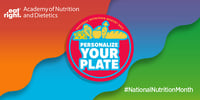
February is American Heart Month! It is an excellent time to take charge of your health. Regular visits to your doctor to check your blood pressure and cholesterol are simple ways to know your risk factors for heart disease. In fact, 80 percent of cardiovascular diseases may be preventable through education and action.
Heart disease is the leading cause of death in the U.S. for both men and women. However, the good news it is never too late to adopt healthy changes that can lead to long-term results.
Healthy Diet and Lifestyle
A well-balanced, heart-healthy diet is beneficial to people of all ages, but especially important for older adults.
The American Heart Association can help make it easy to remember with their “Life’s Simple 7”:
- Eating better, which can stave off chronic disease. Steps include increasing your intake of vegetables, fruits, nuts, and seeds.
- Maintaining a healthy weight because this can reduce the burden on your heart, lungs, blood vessels, and bones.
- Exercising, which can help with your cholesterol levels, weight, and muscle tone.
- Quitting cigarettes because even one can hurt you.
- Managing blood pressure because unhealthy ranges strain the heart, arteries, and kidneys.
- Maintaining cholesterol to give your arteries the best chance to stay clear of fatty blockages that reduce blood flow.
- Reducing blood sugar to lower the risk of dying from cardiovascular disease.
Home-delivered meals are an easy way to ensure you are getting meals that are low in salt, sugar, fat, and cholesterol. These heart-healthy home-delivered meals are often a benefit on several Medicare Advantage plans. Many people with chronic conditions may qualify to receive meals too. Check with your healthcare plan to see if you are eligible.
Smart Meal Choices
You always hear the healthiest part of any grocery store is the outer ring. The outer ring is where all of the meats, fruits, vegetables, grains, and nuts are found. It is an excellent starting point for anyone wanting to maintain a heart-healthy diet. For increased heart health, consider limiting high-fat dairy products and limit meat choices to low-fat cuts. Make sure to aim for the daily recommended intake from the USDA.
- Fruits, 2 cups a day with a focus on fresh, frozen, canned, or dried.
- Vegetables, 2 1/2 cups a day with a focus on a colorful rainbow of fresh, frozen, and canned.
- Grains, 6 ounces a day with a focus on whole grains.
- Protein, 5 1/2 ounces a day with a focus on lean meats, poultry, seafood, beans, peas, seeds, and eggs.
- Dairy, 3 cups a day with a focus on fat-free milk, yogurt, and soy beverages.
Exercise for Long-Term Health
If a heart-healthy diet is the peanut butter, then exercise would be the jelly in a heart-healthy PB & J lifestyle sandwich. The thought of starting a new exercise routine can be overwhelming, but it does not have to be. Start with American Heart Associate minimum goal of 30 minutes a day of moderate activity at least five days a week.
- Pick activities that you find enjoyable.
- Make sure you choose activities that can be year-round.
- Include friends and relatives; having a buddy increases your likelihood of maintaining your new activity.
- Dress in comfortable clothes.
- Always remember to hydrate during your activity.
Over time, you will find your stamina increase and your current activity is more comfortable to complete. That is why it is essential to start out small and gradually increase as you improve. We always recommend consulting with your doctor first.











